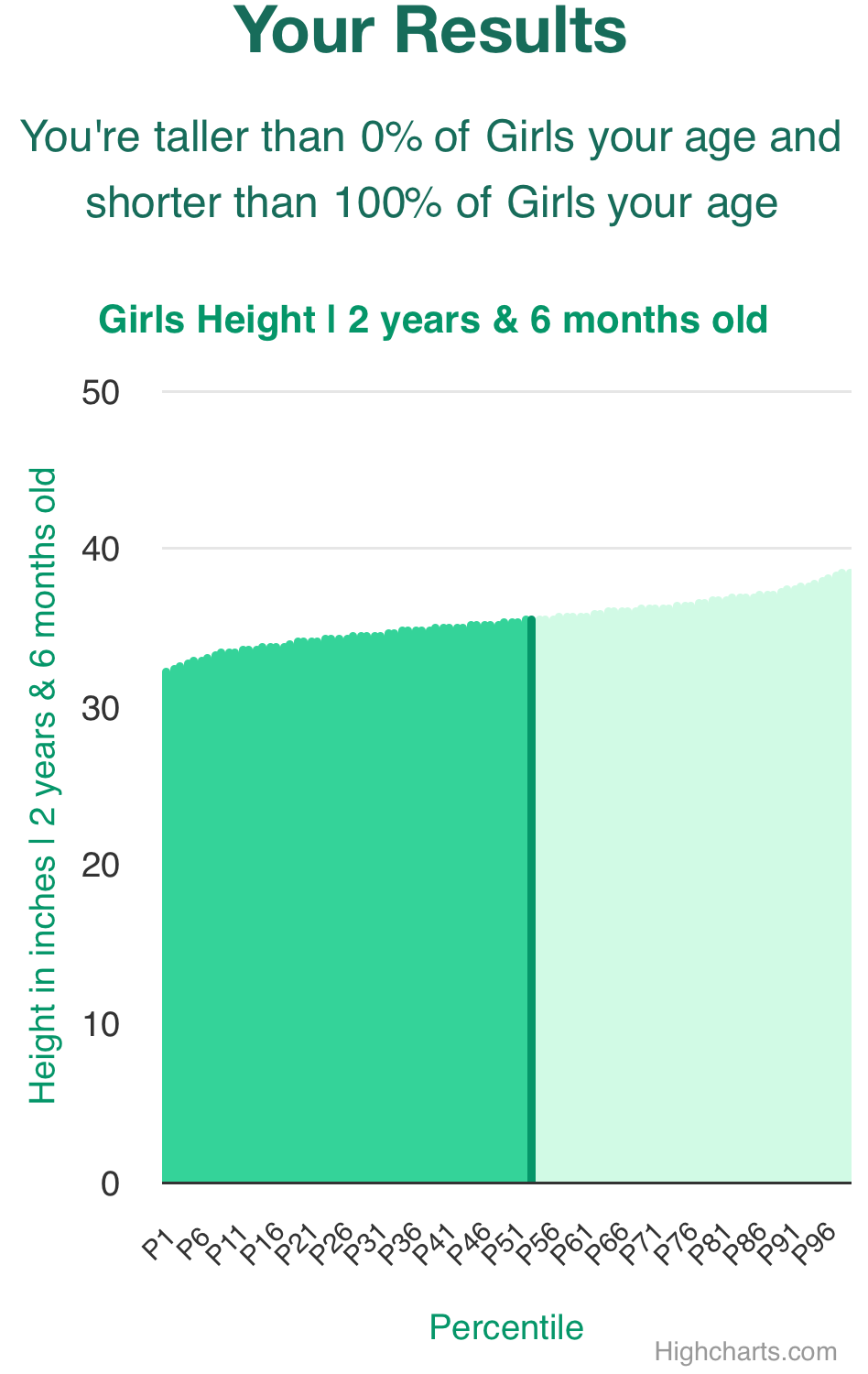Girls Weight chart in lbs for Toddlers 2 years & 6 months old

General Summary: 2 years & 6 months old girls weight
In most cases, weight measurements for 2 years & 6 months old girls will be in the range between 23 and 36 lbs. The average weight for 2 years & 6 months old girls is 28 lbs, according to the CDC and anonymized data from users.
All Results
Enter your weight measurements above to see how they compare
So far, we have recorded [0] weight measurements for 2-years-6-months girls on LifeMeasure!
(chart updates daily)
See more ages